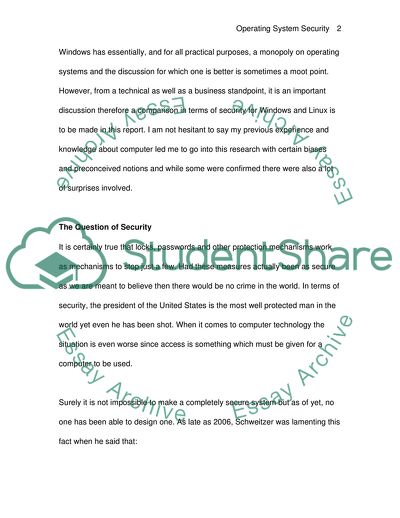Cite this document
(Linux or Windows: Which is More Secure Case Study, n.d.)
Linux or Windows: Which is More Secure Case Study. Retrieved from https://studentshare.org/information-technology/1705527-operating-system-security
Linux or Windows: Which is More Secure Case Study. Retrieved from https://studentshare.org/information-technology/1705527-operating-system-security
(Linux or Windows: Which Is More Secure Case Study)
Linux or Windows: Which Is More Secure Case Study. https://studentshare.org/information-technology/1705527-operating-system-security.
Linux or Windows: Which Is More Secure Case Study. https://studentshare.org/information-technology/1705527-operating-system-security.
“Linux or Windows: Which Is More Secure Case Study”. https://studentshare.org/information-technology/1705527-operating-system-security.


